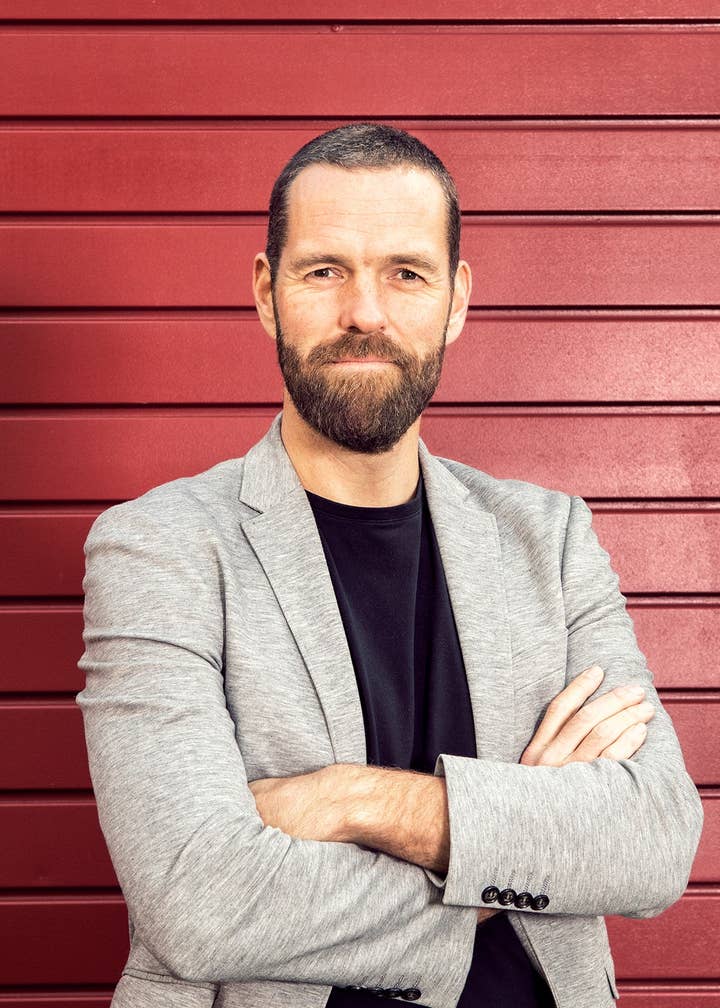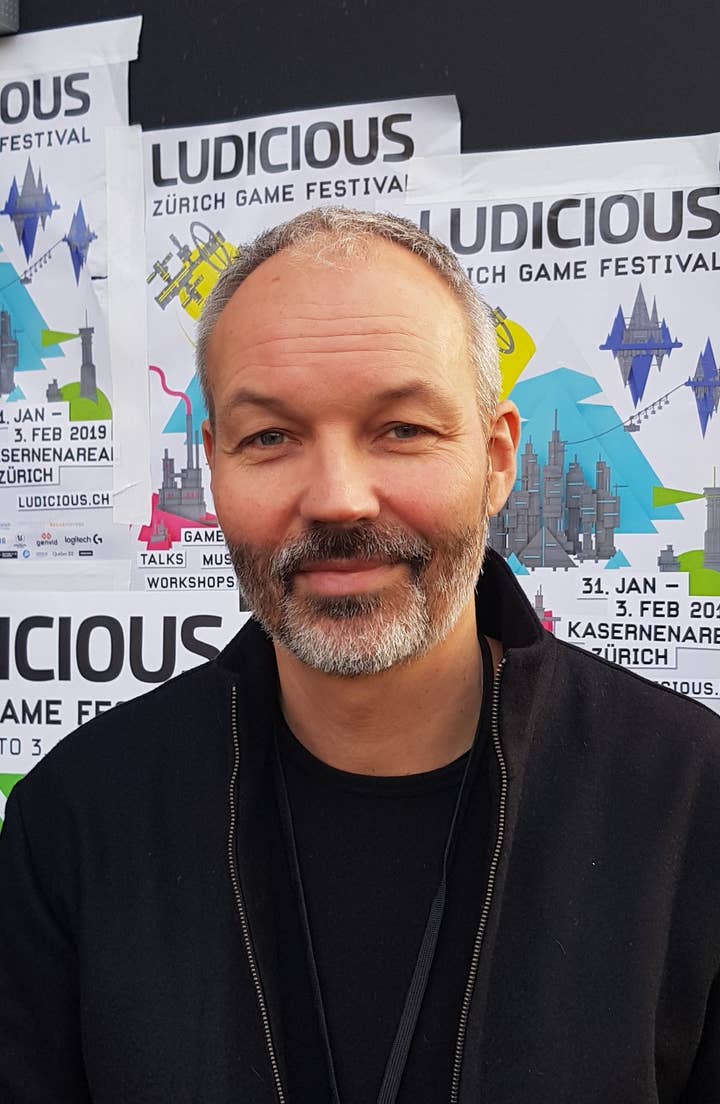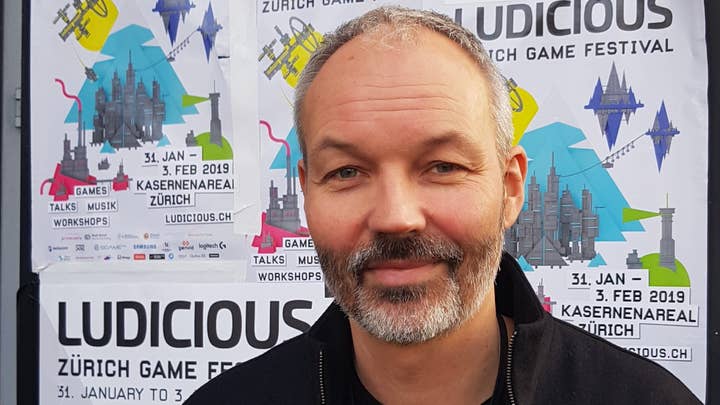Building an empire, one IP at a time
Head of IP development at Nordisk Film Games on the harnessing the changing face of entertainment
Despite quietly investing over €100 million into the sector since 2016, Nordisk Film likely isn't a name that rings familiar to many people in the games industry. Founded in 1912, it's the most Oscar-nominated film studio outside of America and -- since launching a games subsidiary just over two years ago -- has become a dark horse of the industry, investing in multiple Nordic game companies.
By far it's most substantial deal was the €10 million investment into Avalanche Studios, followed roughly a year later by a complete acquisition worth €89 million. But Nordisk Film Games has also forked out millions for shares of Reto Moto and Star Stable Entertainment, along with a sizable investment into Flashbug, Kogama and indie publisher Raw Fury.

"Nordisk Film has a long history investing in creative content, especially movies, so we are used to working with hits and misses," Nordisk Film Games managing director Mikkel Weider told GamesIndustry.biz.
"We are also used to working with creative people, while still making a business out of it. What we really liked about the gaming sphere, when we entered two years ago, was that it's a big and global market with strong growth. We also realized that a lot of the growth was happening in our own backyard: the Nordics. We thought we could be a good investor with a local presence, yet global outreach."
Despite its aggressive moves into the industry, Weider says Nordisk Film Games has no designs on establishing itself as a Nordic rival to the likes of EA or Ubisoft.
"We are not a publisher and don't have aspirations to be," he added. "We want to help our companies grow strong, but remain independent. We believe in empowering the management of each company, and we try to assist with knowledge, network and collaboration between the studios we invest in."
If anything, publishing is too small a pond for Nordisk Film Games, which plans instead to build multimedia franchises from the properties it owns. The big challenge is proving popularity, an area where early access and games-as-a-service have helped to mitigate risk.

Speaking with GamesIndustry.biz during Ludicious Game Festival in Zürich last month, independent consultant and head of IP development at Nordisk Film Games Christian Fonnesbech suggested these new industry standards have not only reduced risk, but made games investments much more appealing from an empire building perspective.
The upfront investment of big budget films that have no early access options means "you've practically failed before you started", said Fonnesbech. But as the starting place for building a global IP, games are difficult to match.
"From an investment point of view, as a media conglomerate, what's interesting about games is that three people can make one in a garage," said Fonnesbech. "If you're able to wait and see which ones have success, then actually the risk is much less... But if you're going in before the first audience has seen it, then of course the risk is enormous. And that's actually one of the things we're seeing.
"What the indies need to realise is that games becoming a service counts for them too. Because if you want to take a risk of building a game or an IP, you have to make sure that you can meet the audience all the way almost from the first prototype. But what we're still seeing is that indies are making single sale premium games that cannot be tested before they are 100% complete, and that means that even at the garage level the risk of failure is enormous.
"If you're trying to build an IP or trying to build a company, then we have to get away from this sort of vinyl record model where we're not shipping before it's finished"
"We all need to start thinking of games-as-a-service as something that can reach its audience very early and can then be killed if its not working. Of course, if you're an artist and you're purely focused on expressing yourself, that's a different matter. But if you're trying to build an IP or trying to build a company, then we have to get away from this sort of vinyl record model where we're not shipping before it's finished."
Fonnesbech added that there is still a future for artistic indies, but the industry is changing and small developers need to be prepared to change with it if they want to build something that lasts.
"There will always be space for them, and I think that with things like Kickstarter you can find an audience -- just like there is an audience for art house rock bands and movies," he said. "I think a lot of indies overestimate the size of the audience. I've been there; I spent four years of my life making an art game. It won lots of prizes, and we sold 20,000 units.
"I've been there and I know how it feels because everybody thinks this game is special, but to be honest it probably isn't. The problem is, it's the law of silent witnesses -- you only hear from the people who have been successful. You don't hear from the thousands who weren't, and that's a big problem. There is a lot of shattered dreams laying at the foot of that altar."
Owned by media conglomerate Egmont, Nordisk Film ties into a wider machine of TV stations, books, magazine and websites. For developing global multimedia IPs based on games, it's in an interesting position.
"You only hear from the people who have been successful. You don't hear from the thousands who weren't... There is a lot of shattered dreams laying at the foot of that altar"
"[Games are] the latest iteration of what entertainment is, of what storytelling is," said Fonnesbech. "So when we do invest, we're investing in companies that do have a strong focus on IP. If you look at Avalanche, they have worked on some of the biggest IPs and done really well with Just Cause and Mad Max, and now they are beginning to make their own IPs."
According to Fonnesbech, compared to 20 years ago when it was all about star power, home entertainment is increasingly becoming an IP-driven business. The changing face of entertainment informs Nordisk Film Games' approach to the industry as it prepares to franchise everything from Star Stable to the upcoming Generation Zero.
"What we're looking at is, how can we take something like [Generation Zero] to Hollywood while building a game series of it," said Fonnesbech. "Obviously Avalanche is completely in control of the game series and has complete approval of what we do on the way to Hollywood, but what we're doing is taking it there. Developing the story lines, developing the pitch, contacting agents, all of that with the goal of either making a movie or a global streaming TV series."
Of course, it's all but impossible to consider movie and TV adaptations of games without recalling the myriad horrors of the past. From Super Mario Bros. and Mortal Kombat to Tomb Raider and Hitman of more recent years, Fonnesbech didn't mince his words when he described previous adaptations as "all crap".
"To be honest, I have not seen a good computer game movie," he said. "I've seen good movies that feel like games: The Matrix, Jumanji. But where is the good computer game adaptation? There are none. And the reason I think there aren't any is because they have mainly been marketing decisions. So it's been marketing people who have said to make a movie, and at some point the contact with the original artistic impulse has been lost and it's just an exercise in getting tickets sold."
How then does Nordisk Film intend to break form and build a genuinely successful multimedia franchise? "What we really want to do is to get into games because we are game players, and then bring the screen writers in there who are also game players," Fonnesbech continued. "That's one of the things I have discovered: stay away from screen writers who don't play games because they will never get it. You keep explaining to them and they still don't get it.
"What we're doing is basically using the world and the main pillars of it, and then we're making a story that respects those pillars but doesn't necessarily tell the same story as the game.... Just to be clear, the thing is still an artistic process. If you lose that, you're screwed."

